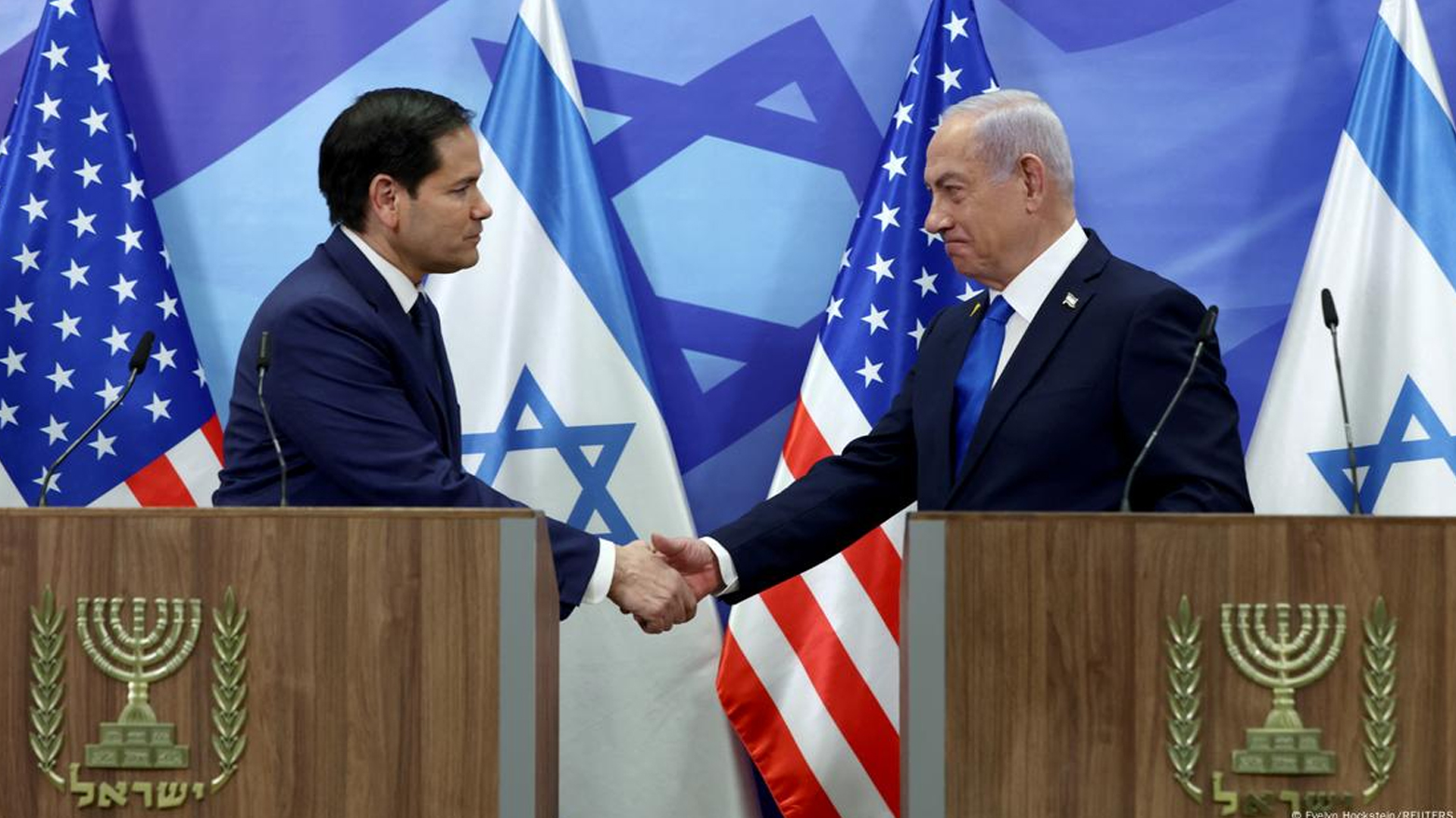Two Years After the October 7 Attacks, Rubio Reaffirms U.S. Support for Israel
On the two-year anniversary of the October 7 attacks, Secretary Rubio reaffirmed US support for Israel as Gaza ceasefire talks resumed in Egypt. Hamas and Israeli delegations, led by Khalil al-Hayya and Ron Dermer, began negotiations amid cautious optimism.

ERBIL (Kurdistan24) - The United States on Monday marked the two-year anniversary of the October 7, 2023 attacks, which claimed the lives of more than 1,200 people, including 46 Americans, in what Secretary of State Marco Rubio described as “the most brutal terrorist assault in Israel’s history.” The commemoration comes as Israeli and Hamas delegations begin a new round of negotiations in Sharm El-Sheikh, Egypt, seeking a breakthrough in ceasefire and hostage-exchange talks.
In an official statement issued by the U.S. Department of State, Secretary Rubio paid tribute to the victims of the attacks and reaffirmed Washington’s “unwavering support for Israel’s right to exist, defend itself, and ensure the safety of its people.”
“Today marks two years since the attacks of October 7, when Hamas murdered more than 1,200 innocent men, women, and children — including 46 Americans — and took 254 hostages, among them 12 Americans,” Rubio said. “To this day, 48 hostages remain in Hamas captivity, including the remains of American citizens Itay Chen and Omer Neutra.”
Rubio underscored that under President Donald Trump’s leadership, the United States is leading efforts to “secure the release of all hostages, end Hamas’s rule in Gaza, and advance a durable peace that ensures not only Israel’s security but generational peace and prosperity for the region.”
The Secretary emphasized that the administration’s 20-Point Plan forms the core of this vision for regional stability. He also warned against the “troubling surge in antisemitism threatening Jewish communities worldwide,” asserting that “there can be no compromise with antisemitism.”
Against this solemn backdrop, the first round of Gaza ceasefire talks concluded late Monday in Sharm El-Sheikh, described by Egyptian state-linked media as taking place “amid a positive atmosphere.”
Negotiators representing Hamas and international mediators are holding indirect discussions centered on President Trump’s long-term ceasefire proposal, which includes a large-scale hostage–prisoner exchange and a roadmap for Gaza’s postwar reconstruction and governance.
The talks, described as the most consequential diplomatic engagement since the Gaza war began, also saw the arrival of the Israeli delegation, led by Strategic Affairs Minister Ron Dermer, on Monday afternoon.
President Trump told reporters from the Oval Office that he was “confident a deal is within reach.” He said, “They’re in negotiations right now as we speak… I think we’re going to have a Gaza deal, I’m pretty sure.”
He dismissed speculation of friction with Israeli Prime Minister Benjamin Netanyahu, saying the Israeli leader had been “very positive about the deal.”
Heading the Hamas delegation is Khalil al-Hayya, a 65-year-old veteran figure from Gaza’s Shujaiya neighborhood, widely known among Palestinians as “Abu Ossama.” Having survived three assassination attempts and the loss of several family members—including his eldest son—in Israeli strikes, Hayya has become both a hardened strategist and a symbol of endurance.
Appearing in public for the first time since surviving an airstrike in Doha last month that killed several aides, Hayya expressed sorrow for the “thousands of martyrs” lost during the conflict, while praising the resilience of the Palestinian people.
Regarded as one of Hamas’s more pragmatic leaders, Hayya was educated in Gaza, Jordan, and Sudan, and rose to prominence after the death of Yahya Sinwar in 2024. He maintains strong ties with regional actors, including Hezbollah, Iran, Qatar, and Egypt.
“Hayya is a careful and calculated negotiator,” said Gaza-based political analyst Yasser Abu Hein, adding that his personal loss “has earned him empathy among Palestinians and credibility within Hamas.”
On the opposite side of the table stands Ron Dermer, Israel’s Strategic Affairs Minister and one of Netanyahu’s closest confidants. The 54-year-old Miami-born politician, who previously served as Israel’s ambassador to Washington, is often referred to as Netanyahu’s “de facto foreign minister.”
Dermer’s deep connections to the Trump administration and his role in shaping the 2020 Abraham Accords underscore his diplomatic importance. However, his appointment to lead the Gaza negotiations has sparked criticism from families of hostages still held by Hamas, who accuse him of failing to secure earlier agreements.
Despite public discontent, Dermer remains central to Netanyahu’s strategy of establishing what he calls a “new security order in Gaza,” one that would prevent Hamas from regaining control while enabling international reconstruction under close supervision.
President Trump’s 20-Point Plan for Gaza envisions a comprehensive framework to end the conflict, combining ceasefire enforcement with reconstruction, regional cooperation, and mechanisms to prevent a resurgence of militant control.
Speaking to reporters, Trump reaffirmed that Hamas must agree to disarmament and renunciation of violence as a precondition for any long-term arrangement. “We’re moving toward a peace that will last generations,” he said. “This is about security for Israel and prosperity for all people in the region.”
As the diplomatic process unfolds, Israel observed a day of mourning. At dawn on Tuesday, families of victims gathered at the Nova music festival site, where hundreds were massacred, standing in silence at 6:29 a.m. — the exact time the attacks began two years ago.
Ceremonies across the country honored the memory of the victims and underscored the emotional weight of the anniversary, coinciding with the fragile hope emanating from Sharm El-Sheikh.
For many Israelis and Palestinians alike, the juxtaposition of grief and diplomacy captures the paradox of this moment — a reflection on loss, endurance, and the distant yet vital prospect of peace.
With Khalil al-Hayya and Ron Dermer leading the opposing delegations, the coming days will test whether both sides can bridge the immense divide forged by war — and whether President Trump’s U.S.-backed peace vision can finally end one of the Middle East’s most painful chapters.